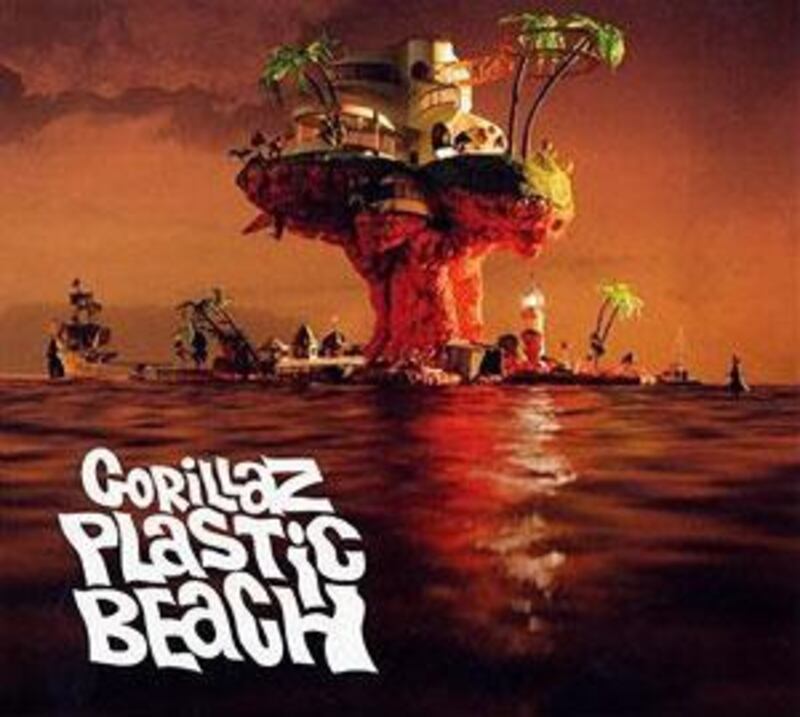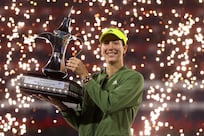A decade is a long time to keep up a pretence, even for an English eccentric. When The Beatles morphed into walruses and the like, they were usually back to their old selves by tea time. David Bowie's metamorphoses tended to last longer, but even his most famous character, Ziggy Stardust, failed to surpass the three-year mark. Perhaps it says something about the Blur frontman Damon Albarn's legendary ego that he requires not one but four personas in his cartoon band, Gorillaz, to fulfil his ambitious musical vision.
His third outing, Plastic Beach, apparently finds the fictitious group dug-in on a tiny island covered in the world's unwanted bric-a-brac after the madcap band member Murdoc's ill-fated foray into arms dealing. Oh, and one of the group is now a robot. If the concept, dreamt up by Albarn and his artist collaborator Jamie Hewlett in the late 1990s, sounds like it's finally wearing thin, that's because it is. One thing that isn't, however, is the music.
Salvaging the best bits from electro, grime, world and everything in between, the guest-heavy record delivers something that is fundamentally pop. The result is not just the best Gorillaz album to date, but a contender for the finest LP of Albarn's career and a new benchmark for collaborative recording. Its opener, Orchestral Intro, does exactly what you'd expect - ushers you towards the solitary land mass with waves of wistful strings. Despite being intended as a greeting call for new arrivals, the Snoop Dogg-fronted Welcome to the World of the Plastic Beach threatens to scupper the trip early, with a vocal that feel like it's been phoned-in from Hollywood.
But then things change spectacularly. White Flag begins with the playful and alluring sound of the Lebanese National Orchestra, then alternates with Casio beats and bleeps topped off with feisty rhymes from the London rappers Bashy and Kano. The first single, Stylo, with a Knight Rider-esque bass line, also boasts one of the album's most memorable vocals, from the soul singer Bobby Womack, who reportedly passed out in the studio after delivering it. It's a strange choice for a single, with nothing you would really call a chorus. Also featuring the rapper Mos Def and Albarn, it feels like there's one voice too many, but you wouldn't want to take any away either.
Things stay catchy and inspired on Superfast Jellyfish, featuring the regular Gorillaz collaborators De La Soul and the Super Furry Animals' Gruff Rhys. Based around a 1960s breakfast cereal advertisement, the song is a likely candidate for the second single. The album's mid-section continues to provide its best collaborations: Glitter Freeze features The Fall's Mark E Smith and little other than a ray gun as accompaniment. Then Lou Reed duets with Albarn on the bizarro wildlife expedition Some Kind of Nature.
You might think Plastic Beach would falter under the weight of its collaborators, but it's such a richly varied and often completely bonkers affair that it ends up feeling like a party during the end of the world. The album's main flaw is that it tries to keep the energy going a few songs too long. Not that there's anything terribly wrong with the not-so-memorable fare, but the album would benefit from being a little less baggy.
Despite this, Plastic Beach is proof of an indisputable fact: that Albarn can make music that is relevant, urgent and accomplished - yet bound up in something that is essentially pop - like no one else.










